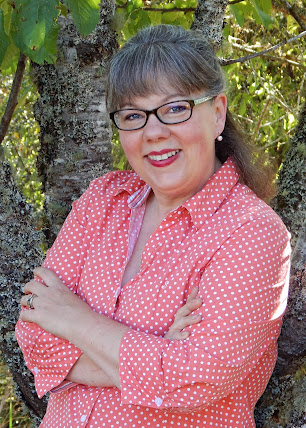 A great many people these days are talking about being more self-sufficient, and many are planning on buying land in order to make this more feasible. Brett L. Markham's book Mini Farming promises food freedom with just 1/4 acre - significantly less than what most homesteading books suggest. So naturally, I couldn't wait to see how Markham does it.
A great many people these days are talking about being more self-sufficient, and many are planning on buying land in order to make this more feasible. Brett L. Markham's book Mini Farming promises food freedom with just 1/4 acre - significantly less than what most homesteading books suggest. So naturally, I couldn't wait to see how Markham does it.Overall, I think Markham does an excellent job with this book, covering many areas other homesteading books neglect. He clearly grows or raises most of his family's food. Most - so I find the sub-title a little misleading. But if you're looking to grow produce and raise chickens for eggs - and if you especially want to do it on a scale so you don't have to buy either of those items and still have enough left over to sell, Markham's book is a definite must read.
First, let me explain my quibbles with the book.
Readers should know Markham uses an intensive gardening method. This shouldn't be too much of a surprise, since he suggests gardening on so little land. My only complaint, then, is that he fails to mention that without plenty of water and fertilizer, you're not going to be at all self-sufficient using intensive methods. In other words, while intensive gardening works well when water is plentiful and not too expensive, it fails miserably if there is a drought or the gardener can't afford to pay the water bill. And if there's no money to purchase the supplements for the soil Markham suggests, the garden isn't going to do well, either. A heads up to readers on this matter would have satisfied me.
Markham also repeats the old idea that vegetable garden rows come from "agribusiness" and have no place in a successful homesteading garden. But wide row gardening actually dates far back into history and was most likely adopted because vegetables grown far apart require far less watering. (Their roots spread out better, and it's easier for them to find water already in the soil.)
Markham also suggests planting one seed per hole, in order to save money on seeds. But he fails to mention that even the best seeds don't have a 100% germination rate. Certainly a gardener can follow his advice and have a fine garden, but they should be warned that not every seed will sprout.
But Markham does such a superb job in other areas, I can't help but recommend his book. For example, he may offer the best guide to starting a new bed that I've ever seen. He also gives some good, solid ideas of how big intensive gardens should be (700 square feet per person, in his estimation). He also provides great information on maintaining the soil in the garden, and even attempts to answer how many vegetable plants should be grown, using the USDA pyramid as a guide. He explains why growing grain on a small scale isn't economical. He teaches pest control through prevention first. He offers good advice on starting seeds on a big scale and discusses the difficulties of seed saving due to inbreeding in a relatively small garden. He covers cleaning eggs for sale, butchering meat chickens, and how to build a plucker and a thresher.
He briefly mentions graywater for irrigation; but here he should have mention that graywater (the dirty water from the washer, for example) can contain feces. (If you wash your undies, that is!) And that in many areas it's illegal to use graywater. He offers the basics of canning and covers freezing with a sealer. And - more briefly than I'd like - covers selling produce and eggs. He also does an excellent job of explaining soil tests and how to amend the soil so a garden can thrive.
So whether you just want a backyard veggie garden (and maybe some hens) or you want a 1/4 acre intensive garden, you're sure to learn something from Markham's personal experience, years in farming, and skill at making the complex simple and understandable.


I have to commend you--your last several posts have been fantastic reading--from how to choose seeds to basic gardening (none of which I was familiar with--and have since started on a micro scale with an indoor greenhouse) and now this awesome book review--and even paint colors!! I seriously had no idea how to even start to do that--thanks so much for this! Love this info!!
ReplyDeleteThanks for the feedback, NCccokingmom. It makes my day :)
ReplyDeleteI love your post. I am starting out a new Homestead from scratch and was looking for resources.
ReplyDeleteI will definitely be getting this book.
Thanks and May God Bless you.